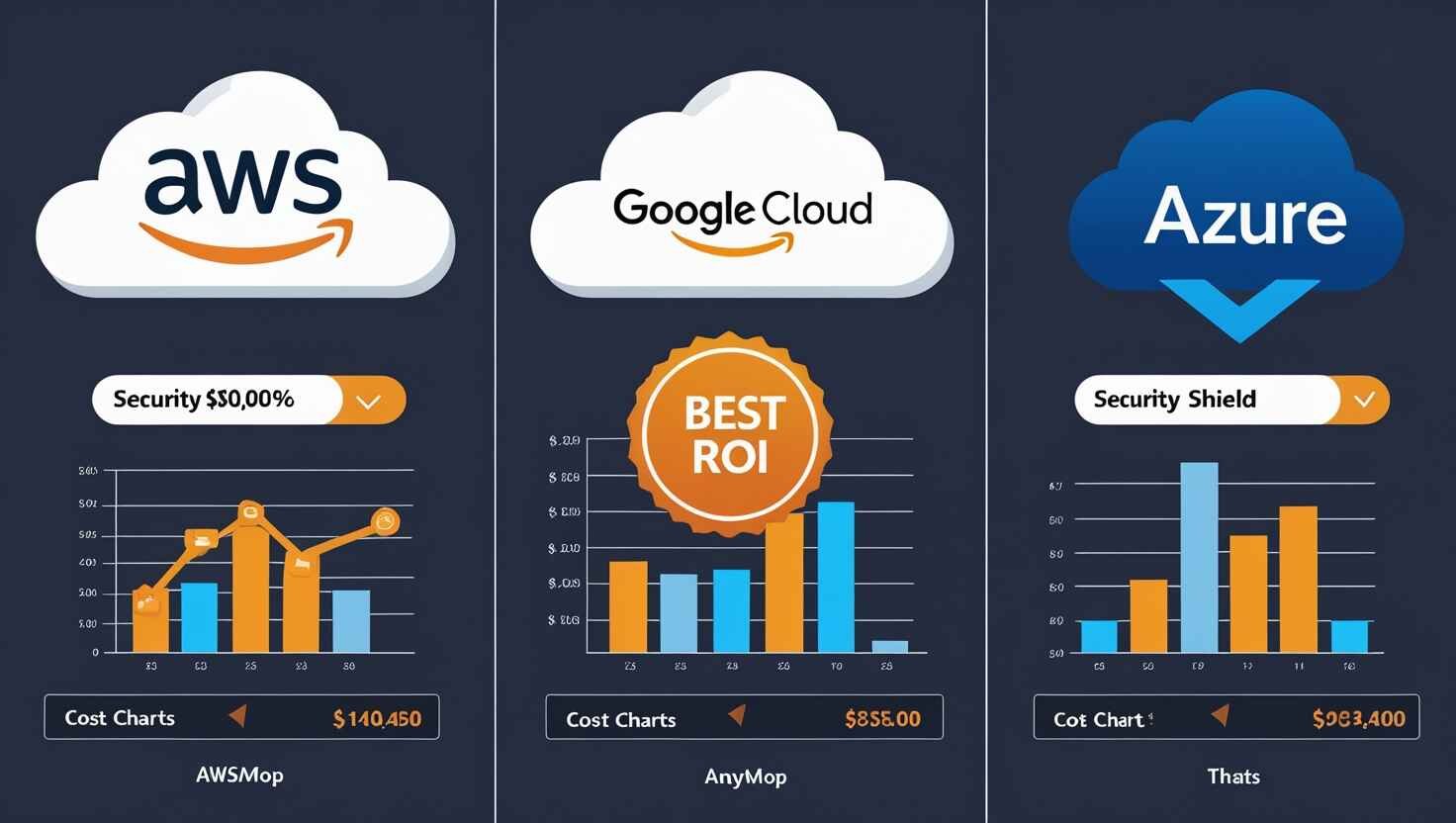AWS vs Google Cloud vs Azure: Which Platform Delivers the Best ROI for SMEs?
Comparing AWS, Google Cloud, and Azure for small and medium businesses? Discover which cloud platform offers the best ROI, cost-efficiency, and features for your SME.
Choosing the right cloud platform is a big decision for small and medium enterprises (SMEs). The three biggest players—Amazon Web Services (AWS), Google Cloud, and Microsoft Azure—all offer powerful tools, but which one gives you the best return on investment (ROI)?
In this guide, we’ll compare:
✔ Pricing & hidden costs
✔ Ease of use for SMEs
✔ Performance & reliability
✔ Security & compliance
✔ Real-world ROI examples
By the end, you’ll know which cloud platform is the smartest choice for your business.
1. Pricing Comparison: Which Cloud Saves You the Most?
AWS: Pay-as-You-Go (But Watch for Hidden Fees)
- Pros: Free tier available, scalable pricing.
- Cons: Complex billing, extra costs for data transfers.
- Best for: SMEs needing enterprise-level features.
Google Cloud: Discounts for Long-Term Use
- Pros: Sustained-use discounts, simple pricing.
- Cons: Fewer global data centers than AWS.
- Best for: Startups and data-heavy businesses (AI/ML).
Azure: Best for Microsoft-Based Businesses
- Pros: Seamless Office 365 integration, hybrid cloud support.
- Cons: Less flexible pricing than Google Cloud.
- Best for: SMEs already using Microsoft products.
Verdict:
- Lowest upfront cost? Google Cloud
- Best for Microsoft users? Azure
- Most scalable? AWS
2. Performance & Reliability: Which Cloud Runs Faster?
| Feature | AWS | Google Cloud | Azure |
|---|---|---|---|
| Uptime | 99.99% | 99.95% | 99.95% |
| Global Reach | Most data centers | Fastest networks | Strong in enterprises |
| Speed Tests | Best for big data | Best for AI/ML | Best for Windows apps |
Key Takeaway:
- AWS leads in global infrastructure.
- Google Cloud wins in AI and machine learning.
- Azure is best for Windows-based workloads.
3. Security & Compliance: Which Is Safest for SMEs?
AWS
✔ Strong encryption
✔ Compliance with HIPAA, GDPR
✖ Complex security settings
Google Cloud
✔ AI-powered threat detection
✔ Simple security controls
✖ Fewer compliance certifications than AWS
Azure
✔ Best for government & healthcare compliance
✔ Deep Microsoft security integration
✖ Requires more setup for non-Microsoft tools
Best for Security?
- Strict compliance needs? AWS
- AI-driven security? Google Cloud
- Microsoft ecosystem? Azure
4. Ease of Use: Which Is Most SME-Friendly?
- AWS: Powerful but complex (steep learning curve).
- Google Cloud: Clean interface, easier for beginners.
- Azure: Simple if you use Microsoft products.
Best for Non-Tech SMEs? Google Cloud
5. Real-World ROI: Case Studies
Case 1: E-Commerce SME (AWS)
- Challenge: Needed high scalability for holiday sales.
- Solution: AWS auto-scaling reduced downtime.
- ROI: 40% lower costs vs. old servers.
Case 2: SaaS Startup (Google Cloud)
- Challenge: Required fast AI model training.
- Solution: Google’s TPUs sped up development.
- ROI: 30% faster time-to-market.
Case 3: Accounting Firm (Azure)
- Challenge: Wanted seamless Office 365 integration.
- Solution: Azure Synapse for secure data analytics.
- ROI: 20% productivity boost.
Final Verdict: Which Cloud is Best for Your SME?
| Business Need | Best Choice |
|---|---|
| Lowest cost & simplicity | Google Cloud |
| Enterprise-level scaling | AWS |
| Microsoft integration | Azure |
| AI & machine learning | Google Cloud |
| Strict compliance | AWS or Azure |
Next Steps: How to Get Started
- Test free tiers (AWS, Google, Azure all offer them).
- Estimate costs using their pricing calculators.
- Consult an expert if unsure about setup.
Conclusion
There’s no one-size-fits-all cloud solution.
- AWS is the most powerful but complex.
- Google Cloud is cost-effective and great for AI.
- Azure is perfect for Microsoft-based businesses.
Try the free tiers and see which fits your workflow best!




